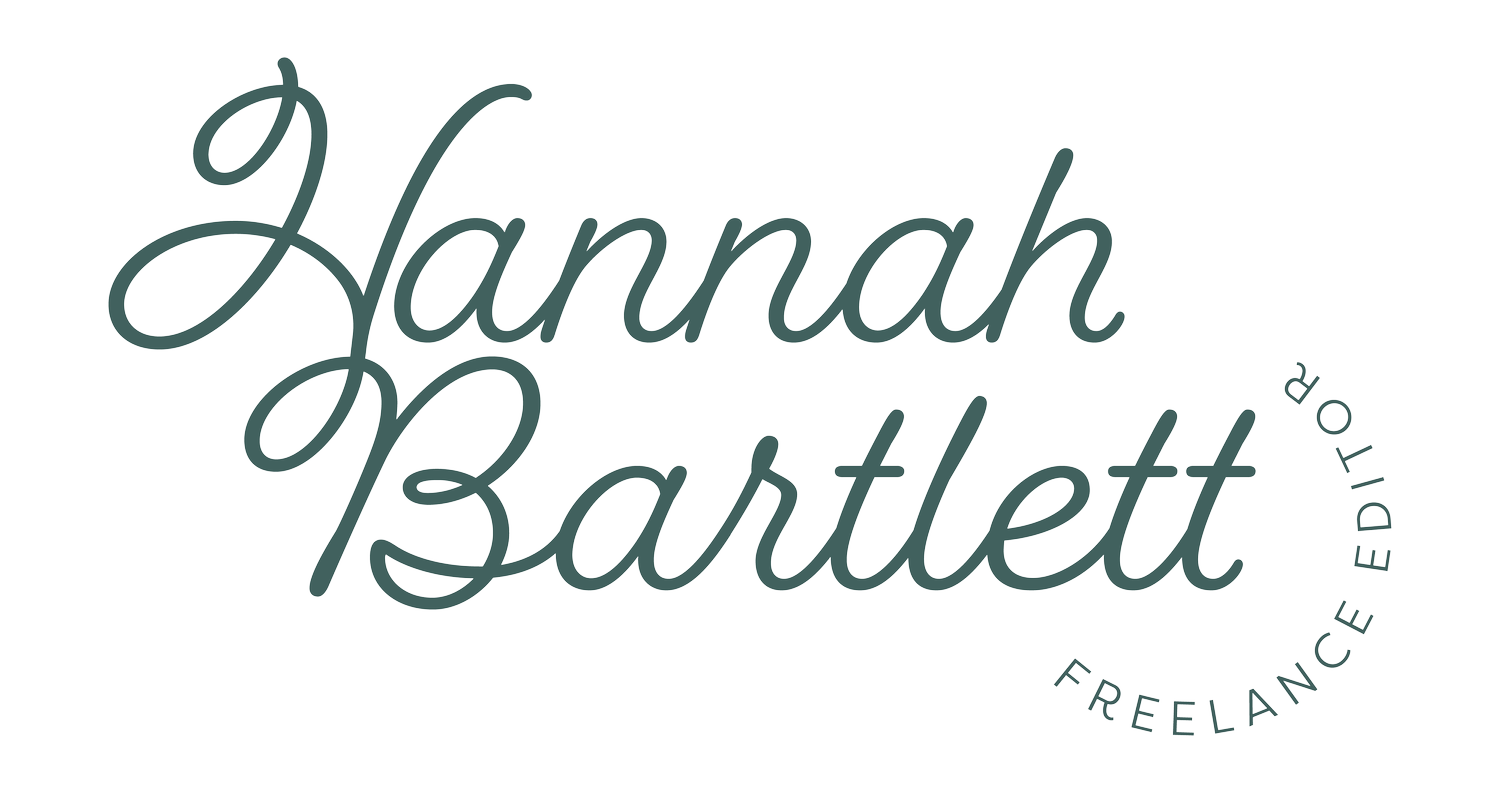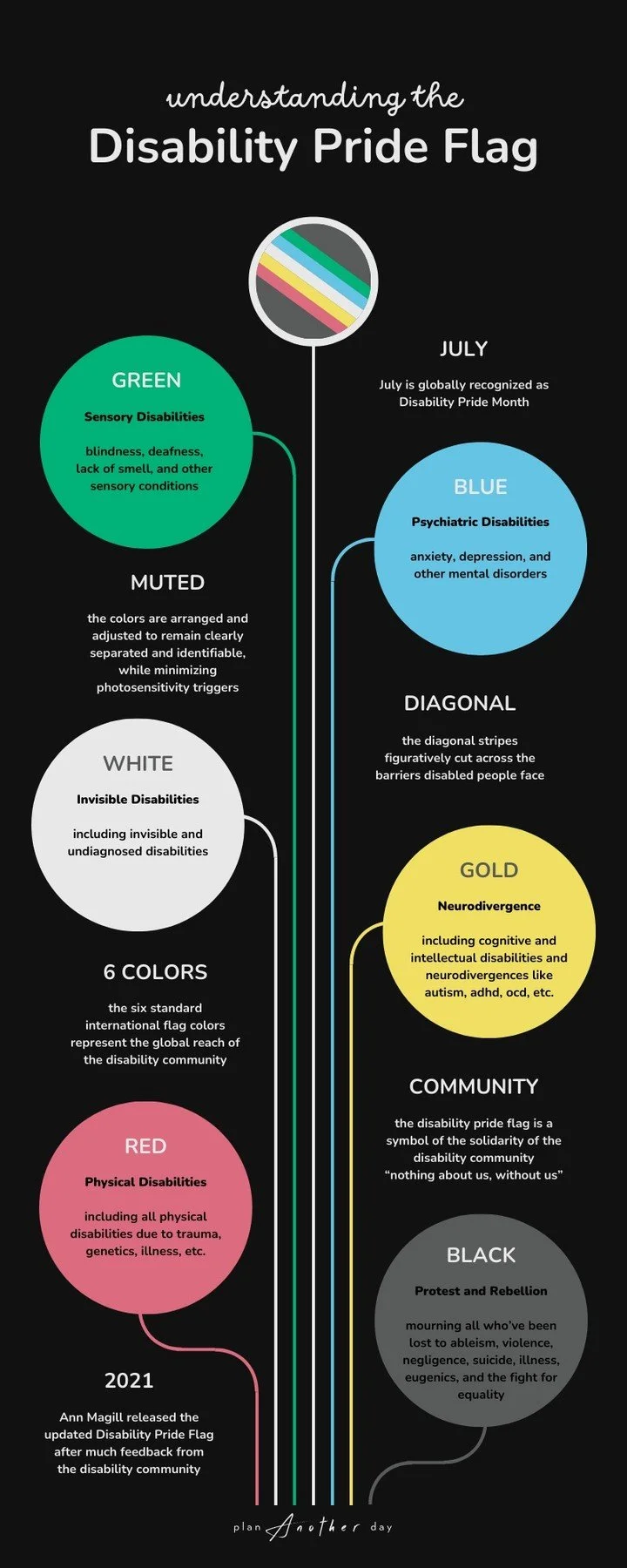Demystifying Ableist Language: Common Harmful Phrases and What to Use Instead
If you didn't already know, July is disability pride month! To celebrate, I'm writing a series of blogs to increase disability visibility, educate people, and foster community discussions. This blog and all of my social media accounts are safe places for anyone to ask (genuine) questions. You can't improve what you don't know you need to, so there's no need to judge anyone when they simply were unaware that what they're saying/doing is harmful.
Writing something with disabled representation? I offer sensitivity/authenticity reading! More information can be found on my services page. Please fill out my inquiry form!
Table of Contents:
Why It Matters
Disability Pride Flag
Harmful Phrases
Resources for Editors and Writers
Why It Matters:
While it is likely unintentional, many people use outdated terms that cause harm to the disability community. My goal with this article is to explain, in a kind way, why these terms cause harm and how to move forward. Words matter, and people are impacted by them whether someone thinks they should be or not.
“Every time you use a word, you are voting for its continued use.”
"Every time you use a word, you are voting for its continued use." - Karen Yin, author of The Conscious Style Guide: A Flexible Approach to Language That Includes, Respects, and Empowers.
As I will say many times throughout this article, if you are in doubt about something, don't make assumptions and ask a disabled person. Disabled people are the authority on their disability, not anyone else. If a disabled person wants to be referred to in a specific way, respect that.
I am only one disabled person, and I can't speak for everyone. This list is simply trying to spread awareness on language preferences in the disabled community that I have gathered after being a part of it for more than a decade.
Disability Pride Flag:
Before I get into the ableist language, I also wanted to share this infographic, created by a disabled artist, to explain the disability pride flag. A lot of people don't know we have one, or what the colors symbolize, so here is a great breakdown!
Harmful Phrases:
Aspergers: This term was coined by a man named Hans Asperger during his career under the Nazi regime. He "publicly legitimized race hygiene policies including forced sterilizations and, on several occasions, actively cooperated with the child ‘euthanasia’ program" and was rewarded for his affirmations of loyalty to the Nazi regime with career opportunities (Czech 2018). Because of this, the disabled community no longer wants to be affiliated with "Aspergers." It is also no longer used as an official diagnosis in most places. Many people use Aspergers to refer to certain autistic people as if they are "better and smarter" than "just autistic" people.
Please just say that people are autistic!
Functioning labels: Similar to "Aspergers," functioning labels such as "high functioning" "low functioning" or "severe" create an unnecessary divide in the autism community. They are also often used by people to imply that some people are "more autistic" than other people, or that some people are more entitled to more support than others.
These phrases tend to cause people to underestimate people they deem to be "low functioning" or Autism is a spectrum and should be treated as such. People are just too diverse to put in boxes!
Some people prefer phrases such as "low, medium, or high support needs," or the new diagnostic tool, "level 1, 2, or 3 autism." Personally, I prefer to not be referred to by any of these phrases because they have been used to tell me that I'm not struggling enough to receive support.
If you are writing or talking about an autistic person, consider whether it is necessary to label them as a certain "type" of autistic, and how well you even know this person. Many people assume how someone is "functioning" based on very little information, such as after meeting them once in a specific setting.
Instead of describing someone using functioning labels, if you really have to communicate what kind of support they need. simply get specific. You could say something like: "they will need assistance with preparing food sometimes, but they don't usually need assistance with communication."
Thinking of autism as a color wheel instead of a linear spectrum is very helpful when it comes to understanding these ideas!
Person-first vs. identity-first language: You might have noticed that throughout this article, I've used the phrase "autistic people" instead of "people with autism." This is because the majority of people I've spoken to prefer identity-first language (autistic person) over person-first language (person with autism). Many autistic (and other neurodivergent) people consider their autism (and other forms of neurodivergence) to make up a large part of themselves, because autism affects how our communication, behavior, the way we process information, and how we interact with the world. Person-first language also can imply that the person with x can be cured. Autistic people and other disabled groups that use identity-first language cannot be cured!
While the majority of people I've come across prefer identity-first language, make sure to ask what the person you are referring to prefers.
Differently abled, handicapable, etc.: Using these euphemistic terms, while usually well-meaning, usually comes off as demeaning. They imply that there is something shameful about being disabled when there isn't. Disabled isn't a bad word, so please use it!
Wheelchair bound: This phrase can imply that people are trapped by their wheelchair, but many people actually gain freedom when they have their wheelchair, which is why many prefer the term "wheelchair user." This also applies to other mobility aids.
Condition vs. disorder: When autism was changed to autism spectrum disorder (ASD) in 2013, many people were appreciative of the addition of "spectrum" but were upset at the addition of "disorder."
Some people don't mind "disorder" because they feel it accurately represents what their disability is like. I personally don't like "disorder" because I don't feel that my neurotype is disordered, but simply a divergent of what's typical.
Similarly, many people prefer "traits" instead of "symptoms" because the latter implies a disease. "Suffers from" is widely disliked for the same and other similar reasons. Some people don't feel like they "suffer from" their disability, but instead from society being made for neurotypical and non-disabled people.
Self-diagnosis: Receiving diagnoses for many disabilities is extremely difficult. It can be difficult to get an autism diagnosis, for example, because the diagnostic standards are based on white, male children. Adults, people of color, people with other disabilities, and others can be ignored due to harmful stereotypes of what autism is supposed to look like. My personal experience with this is with autism, but many other disabilities are the same way.
Getting a diagnosis is also usually not covered by insurance, so they are wildly unaffordable. In places where a diagnosis is affordable, waiting lists to get tested can be years long.
Because of these issues, self-diagnosis is valid. The majority of self-diagnosed people aren't just watching a few TikToks and deciding that they're disabled; most do extensive research, take reputable online quizzes (aka not Buzzfeed), talk to therapists and doctors, read books, and learn from other people with the disability.
Neurospicy: Some neurodivergent people like this term, while some do not. Often, it can depend on the intentions of the person using it and the context they're using it in.
For example, a song called "neurospicy (interlude)" was released on June 27, 2024 by an artist named Jax and it has been met with large amounts of criticism from the disabled community. Many are saying that the song and the term "neurospicy" are infantilizing and that they "quirkify" neurodivergence.
Some of the lyrics that disabled people have an issue with are: "I might be a little spicy / A little bit neuro spicy / Isn't everyone a little bit spicy / Spicy is better than bland."
Saying that "everyone is a little bit" neurodivergent attempts to delegitimize the experiences of neurodivergent people, so please stop saying phrases like that.
While I don't use "neurospicy," many other neurodivergent people do. If you want to refer to someone else as neurospicy, make sure you ask what they prefer.
Dumb, lame, and crazy: These phrases have a long history of being used to perpetuate stigma against disabled people, such as people with schizophrenia or learning disorders. Alternatives include silly, goofy, reckless, and naive.
Autism Speaks and the puzzle piece symbol: Autism Speaks is an organization that has done a lot of harm to the autism community. I could write books on it, but to summarize they have and continue to promote fear, stigma, and eugenics. Because the color blue and the puzzle piece symbol is associated with Autism Speaks, the disabled community has transitioned to the disability pride flag, the rainbow infinity symbol (meaning neurodivergence), and the gold infinity symbol ("Au" is the atomic symbol for gold, and autism starts with "au"). #RedInstead is a direct protest of Autism Speaks's #LightItUpBlue.
I'm so "x": One of the most common examples of this phrase is when people say "I'm so OCD" when they simply like to have things organized. I've also heard "that's so bipolar" when someone changes their mind a lot. Phrases like this are very harmful because they perpetuate stereotypes and degrades the real struggles that we go through. "Obsessive Christmas Disorder" and other plays on disability-related words ("acoustic" instead of autistic, etc.) are extremely offensive and should be avoided.
Resources for Writers and Editors:
Want to learn more and incorporate conscious language into your writing and editing? Here are some great resources!
The Conscious Language Style Guide by Karen Yin Book and Online Articles
Crystal Shelley's (Rabbit with a Red Pen) Webinars, Courses, and Conscious Language Toolkit
Literary Laura's blog and course: Reducing the Barriers: helping neurodivergent writers through the writing and publishing process
More explanations and affirmations by Blossom (Tea with HB)
Disability Language Style Guide from the National Center on Disability and Journalism
Thank you so much for reading until the very end! I worked so hard on this article, and I hope it helps. Feel free to email, DM, or @ me on social media with any comments or questions.



